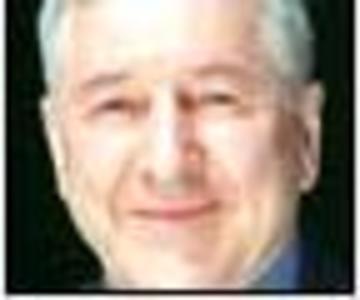There is a new political dynamic at work in Quebec. Parti Québécois Leader Pauline Marois demonstrated it last week at her nomination meeting for the Sept. 24 by-election in Charlevoix. In her speech, she never once mentioned Premier Jean Charest. But she did train her artillery on Mario Dumont, leader of the Official Opposition.
That figures. In the March general election, the once proud party of René Lévesque, Jacques Parizeau and Lucien Bouchard was cut down to third place, behind both the Liberals and the upstart Action Démocratique du Québec. What hurt most was that the ADQ actually won more votes than the PQ among francophones, the PQ's core constituency. So vanished the decades of polarization between the PQ as the party of us - nous - and the Liberals as the party of them - les autres. The PQ had stricken the word "nous" from its vocabulary, as Ms. Marois explained.
"For the past decade, we were overcome by a troubled conscience that kept us from saying 'nous.' It was as though the word 'nous' was taboo. It was as though to speak or act in defence of our identity had become a synonym of racism or intolerance."
When Mr. Lévesque published the separatist manifesto, Option Québec, that led to his founding of the PQ, he titled the first chapter "Nous autres" - us, ourselves - and he meant it to define a special identity.
"To be ourselves means essentially to maintain and develop a personality which has lasted for three and a half centuries. At the heart of this personality remains the fact that we speak French. Everything else is attached to this essential element, or derives from it, or brings us back to it infallibly."
But ethnic nationalism fell into disrepute over the years. When Mr. Bouchard visited Washington in 1994, he was quick to assure the Americans: "Our nationalism is not ethnic, our nationalism is territorial."
Mr. Parizeau delivered the language of "nous" a memorable setback on the night of the closely run 1995 referendum, when he declared before the world: "It's true that we were beaten - by what? By money and ethnic votes, essentially." He did not then speak as the premier of all Quebeckers, or even as a Quebecker. Instead, he was the militant leader of Quebeckers who spoke French, promising that, next time, this nous would be victorious: "We are - look, enough of talking about 'the francophones of Quebec,' do you hear? We will speak of nous. By 60 per cent, we [nous] voted yes. We [nous] fought. We [nous] fought and, nous, we succeeded in showing clearly what we [nous] wanted."
That was too much of nous to stomach, and the word went out of style. But now it's making a comeback, as Ms. Marois made clear. She explained the party's defeat in March by the fact that the PQ had ceased to talk about the French identity.
"Our fellow citizens told us, in their own way, that they no longer recognized themselves in our project. They got the impression that our party, which did so much in the past to assert and defend the Québécois identity, had no longer anything to say on the subject. That is why Mario Dumont was able to present himself so easily as the defender of that identity, even while his speeches went no further than denouncing, without much substance, a few excesses linked to reasonable accommodations."
So Ms. Marois promised that her party would be talking much more about identity, and teaching why that identity required Quebec to become an independent country. For example, on Aug. 22, the Quebec Court of Appeal struck down as unconstitutional a bill passed in 2002 with the support of all three parties to further limit access to English schooling. The court found that these new restrictions on English schooling violated a right contained in the Charter of Rights and Freedoms.
In this new atmosphere, where all three parties are vying to proclaim their Quebec nationalist credentials, all three parties denounced the court's judgment. Mr. Charest immediately announced he would appeal the ruling to the Supreme Court of Canada.
Ms. Marois defended the restrictive language laws as necessary, even if they are currently unconstitutional: "They were adopted precisely because our francophone identity is fragile in America, because it demands an unremitting vigilance, because it cannot suffer any reverse without the threat of its disappearance."
Nous is once again the most important pronoun.
***
WILLIAM JOHNSON
Author and a former president of Alliance Quebec
It's back to the 'nous' in Parti Québécois land
Le "Nous" - stratégie canadian - la diversité comme enjeu, défi et tension

William Johnson53 articles
William Johnson, a Quebec journalist, is a former president of Alliance Quebec




















Laissez un commentaire Votre adresse courriel ne sera pas publiée.
Veuillez vous connecter afin de laisser un commentaire.
Aucun commentaire trouvé